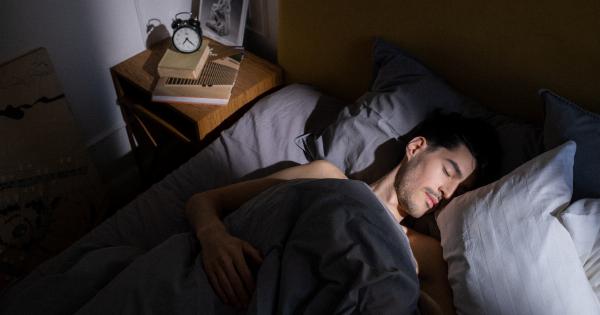Eczema, also known as atopic dermatitis, is a common skin condition characterized by dry, itchy, and inflamed skin. It affects people of all ages and can significantly impact their quality of life.
While the exact causes of eczema remain unclear, research has shown a potential link between sleeplessness, rapid breathing, and the development or exacerbation of eczema symptoms.
The Connection Between Sleep and Eczema
Sleep plays a crucial role in maintaining overall health and well-being. It is during sleep that the body repairs and rejuvenates itself, including the skin.
Lack of sufficient sleep can weaken the skin’s natural barrier function, making it more susceptible to irritants and allergens that can trigger eczema flare-ups.
Several studies have found a bidirectional relationship between eczema and sleep disturbances.
On one hand, eczema-prone individuals often experience difficulty falling asleep or staying asleep due to the discomfort and itchiness caused by their skin condition. On the other hand, poor sleep quality and insufficient sleep duration can exacerbate existing eczema symptoms and even lead to new flare-ups.
Research has shown that when individuals with eczema experience sleep disturbances, their skin barrier function weakens, leading to increased water loss and decreased moisture retention.
This can further aggravate symptoms such as dryness, itching, and redness.
The Role of Rapid Breathing in Eczema
Rapid breathing, also known as hyperventilation, is another factor that has been linked to eczema.
Hyperventilation can occur as a response to stress or anxiety, and both stress and anxiety have been found to trigger or worsen eczema symptoms in many individuals.
When we breathe rapidly, our body eliminates more carbon dioxide than it produces. This leads to a decrease in carbon dioxide levels in the blood, which can affect the pH balance and overall health of our skin.
A disrupted pH balance can weaken the skin barrier and increase the risk of moisture loss, leaving the skin more susceptible to eczema triggers.
In addition, rapid breathing activates the body’s stress response, leading to the release of stress hormones such as cortisol. Elevated cortisol levels can interfere with immune function, making the skin more reactive to irritants and allergens.
This heightened reactivity can result in eczema flare-ups or worsen existing symptoms.
Managing Sleeplessness and Rapid Breathing to Alleviate Eczema Symptoms
While it may be challenging to break the cycle between sleeplessness, rapid breathing, and eczema, there are strategies that can help manage these interconnected factors and improve overall well-being.
1. Establish a Consistent Sleep Routine
Creating a regular sleep schedule can help regulate the body’s internal clock and promote better sleep quality. Aim to go to bed and wake up at the same time every day, even on weekends, to maximize the benefits of a consistent sleep routine.
2. Create a Relaxing Bedtime Ritual
Engage in calming activities before bed to signal to your body that it’s time to unwind. This can include taking a warm bath, practicing relaxation techniques such as deep breathing or meditation, or reading a book.
3. Optimize Your Sleep Environment
Create an optimal sleep environment that is cool, dark, and quiet. Consider using blackout curtains, earplugs, or a white noise machine to block out any external disturbances that may disrupt your sleep.
4. Practice Stress-Reduction Techniques
Implement stress-reducing techniques such as yoga, mindfulness meditation, or engaging in hobbies and activities that bring you joy. These practices can help lower stress levels and reduce the likelihood of hyperventilation-related eczema flare-ups.
5. Seek Medical Treatment
If sleeplessness or rapid breathing significantly impact your quality of life and exacerbate your eczema symptoms, it is important to consult a healthcare professional.
They can provide appropriate treatment options, including medication or therapy, to address these underlying issues and help manage your eczema effectively.































